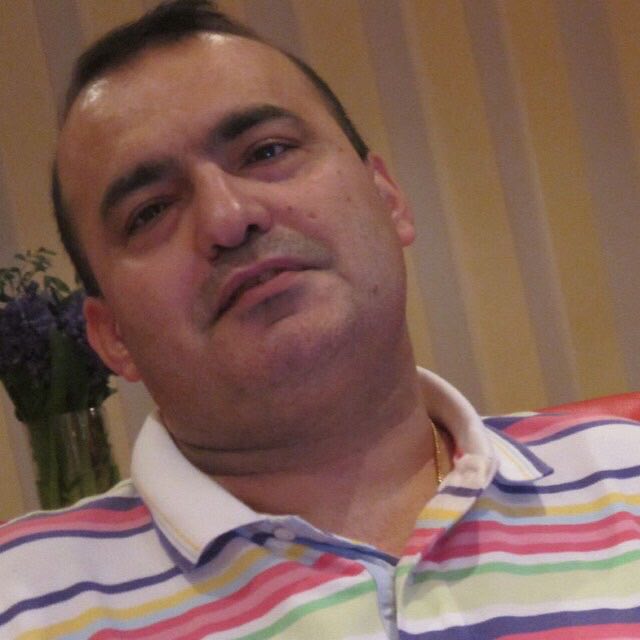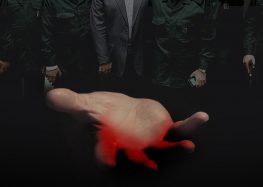UK Resident Detained in Iran by IRGC For More Than a Year Without Charge or Access to Counsel
 Mohammad Reza Hashemi-Nabi, a permanent resident of the UK, has been held in solitary confinement in Iran’s Evin Prison for more than a year without access to a lawyer, his mother informed the Center for Human Rights in Iran (CHRI).
Mohammad Reza Hashemi-Nabi, a permanent resident of the UK, has been held in solitary confinement in Iran’s Evin Prison for more than a year without access to a lawyer, his mother informed the Center for Human Rights in Iran (CHRI).
Hashemi-Nabi, 47, was arrested by the Islamic Revolutionary Guard Corps (IRGC) at Tehran’s Imam Khomeini International Airport on December 23, 2016, after arriving there from London.
“My son went to England with his wife and three kids about 13 years ago to study and have a better life,” Ameneh Heydari told CHRI. “When he came back to visit his father, who was suffering from cancer, they arrested him right there at Imam Khomeini airport and he has been held in the IRGC’s Ward 2-A in Evin Prison ever since.”
Two months into his detention, Hashemi-Nabi’s father died. He was unable to post the 200 million tomans ($54,000 USD) bail set by Judge Abolqasem Salavati to see his father before he passed away.
“For the longest time, the authorities would not allow him to have a lawyer,” Heydari told CHRI on February 6, 2018. “Then Judge Salavati would not accept the lawyer my son had chosen for his defense. The judge said the judiciary must approve the lawyer. Later on, we got a new lawyer but he has not been able to read the case file.”
“We don’t know what the official charges are but unofficially we’ve heard that he has been charged with acting against national security by cooperating with some group outside the country,” she added.
She continued: “These charges are completely untrue. My son was not and is not a member of any group. He was a [Iran-Iraq] war veteran. He put his life on the line to protect the people. How could he do something against the security of his own country? His late father, who spent his entire life in the police force until his retirement, also served for the peace and security of the people. Such accusations don’t stick on our family.”
Heydari has requested that a parliamentary committee investigate the reason for her son’s prolonged detention without charge.
In a letter dated February 1, 2018, addressing the judiciary and the Parliament’s investigative branch, the Article 90 Committee, Heydari wrote: “His detention for more than a year is a violation of Article 242 of the Criminal Procedure Regulations. During the past 14 months, we have gone to the Revolutionary Court and different departments in the judiciary many times but unfortunately we have gotten no results even though we were given a variety of promises and we kept our silence and did not permit the media to report any news.”
“Therefore, in accordance with Article 90 of the Constitution, I seek your assistance in freeing my son… and allowing him to choose a lawyer of his choosing,” wrote Heydari in the letter obtained by CHRI.
According to Article 242: “In crimes subject to sections A, B, C and D of Article 302 of this law, the suspect can be held in detention for up to two months, and for other crimes for up to one month, with a warrant and if no decision is made regarding the accusations against him, the prosecutor must rescind the warrant or reduce the time in detention. If there are legitimate reasons for extending the detention, the suspect will be informed of the reasons, and the extension will be granted… If the suspect’s detention is extended, the duration should not be longer than the punishment for the crime he is accused of. In any case, the extension should not be longer than two years for crimes related to loss of life and one year for all other crimes…”
Article 90 puts the Parliament in charge of investigating complaints made about the operation of the Parliament, the Executive Branch, and the judiciary.






